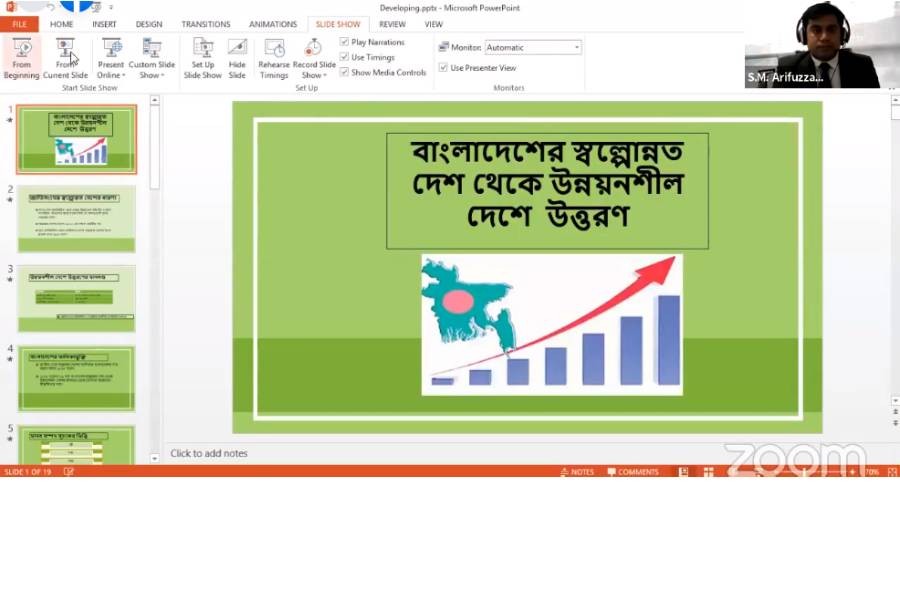Economists at a webinar on Saturday stressed the need for opening up of the country's trade policies for getting preferential facilities in post-graduation period.
With the existing protectionist policies, it would not be possible to reach agreements on preferential trading arrangements with other countries, they viewed.
Canadian University of Bangladesh (CUB) organised the webinar titled "Bangladesh's Transition to Developing Country: Biggest Milestone in her Development Journey".
The speakers emphasised on trying to get GSP plus facilities while improving the productivity and efficiency in the industries.
"The country should look for bilateral and regional trading arrangements in the post-graduation era," AB Mirza Azizul Islam, economic affairs adviser to the past caretaker government, said speaking as a panelist.
He said that Bangladesh is well ahead of other competitors in the US market despite 14-15 per cent import duty is applicable on its products. "So, it will not be a big problem," he said.
He also said that the country would not get aid and credit at concessional rates.
Mr. Islam said foreign direct investment will not rise in the post-graduation period due to low ranking of some indexes like ease of doing business and competitive index.
He suggested taking policies to improve the income inequality and poverty situation.
Policy Research Institute (PRI) executive director Ahsan H Mansur suggested going for bilateral or multilateral trade agreements as the country does not have any preferential trade agreements with anyone.
"We closed that door by protectionist policies," he said, adding that the country has an average protection level of 27 per cent, which is one of the highest," he said.
He said Bangladesh needed to get into agreements with countries like China, India and Japan for preferential trading arrangements. He questioned why Bangladesh would not get GSP plus facilities if Pakistan gets it.
"It is about efficiency in political economic diplomacy," he said.
Distinguished Fellow of Centre for Policy Dialogue (CPD) Dr Mustafizur Rahman said the graduation will change the dependency on preferential facilities, international relationships, internal policies and enforcement of domestic and international rules and regulations.
He said increase in productivity and efficiency, skilled manpower and competitive capacity, strengthening capacity of institutions would help Bangladesh in the developing era.
Mr. Rahman said the country needs to show excellence in negotiation skill to achieve good deals. He urged the government to set up a "negotiation cell" like WTO cell in the Ministry of Commerce.
Bangladesh Securities and Exchange Commission (BSEC) chairman Prof Shibli Rubayat-Ul-Islam said developing human capital through training, improving energy efficiency, cutting cost in production, investment in infrastructures will help increase the country's productivity.
He said that profit repatriation difficulties hindered FDI inflow.
The BSEC chairman said: "We should make laws for good majority, not difficult laws for 4-5 per cent bad people who make business difficult for all."
Chowdhury Nafeez Sarafat, Founder & Chairman of Board of Trustees of Canadian University of Bangladesh chaired the webinar.
Prof. Dr. Sheikh Mamun Khaled, Pro-Vice Chancellor of CUB, and Prof. Mohammad Ali Arafat, among others, also spoke at the webinar.
S.M. Arifuzzaman, Head & Associate Professor at School of Business of the university, moderated the webinar.


